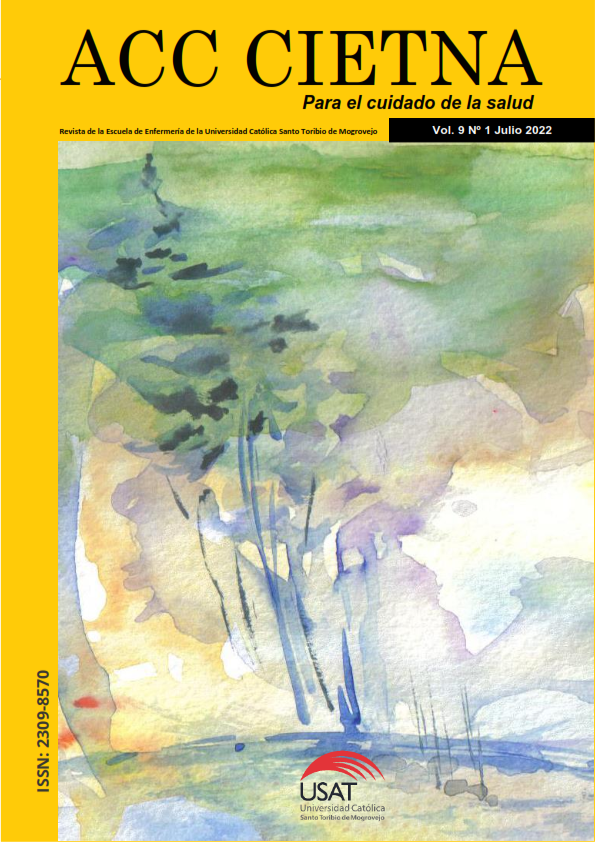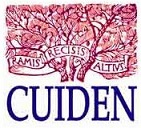Resumen
Los profesionales de enfermería inmersos en el mundo real intrahospitalario, comunitario o científico, desarrollándose como especialistas clínicos o docencia y avalados con un título de especialidad, máster o doctorado, encontraron tiempo disponible para la práctica investigativa, situación muy típica de la enfermería peruana.
Abstract
Nursing professionals immersed in the real intrahospital, community or scientific world, developing as clinical or teaching specialists and endorsed with a specialty, master's or doctoral degree, found time available for research practice, a very typical situation in Peruvian nursing.
Many of these professionals have not only managed to contribute new knowledge to nursing science but also its implementation to improve or strengthen care for the most vulnerable according to their available resources and the help received from the institutional authorities. For example such as improvements in pain therapy, increased quality of breast milk for nursing the newborn and thus its survival, the consideration of cultural diversity in migrant children and adolescents, the continuity of care with the use of telemonitoring in times of pandemics, new forms of teaching and counseling with virtual modality and many more that colleagues in Latin America and global level continue to deepen to provide solid contributions, with the sole aim that the care offered is comprehensive, at the height of the dignity of the person whose ailments have changed their lives because they are carriers of terminal diseases or that for reasons of maintaining life is left with a surgical sequel whose days are numbered or natives that for lack of knowledge of their language it is not possible to educate them in preventive measures and other aspects that you as a nursing professional know very well for being close to reality1,2.
All these aspects mentioned above require taking seriously the teaching of research from the undergraduate level with the requirement of publication, with excellent consultancies that generate in future nurses the spirit of research, illusion so that the new knowledge is applied, without thinking that research in nursing is boring or tedious On the contrary it is wonderful especially when you have clear lines of research in current environments, where priorities are evidenced, reasoning together on policies and why not in the sources of funding that actually involved in the progress of research.
It is true that means are required, and we can have them, but if there are no responsible and honest researchers, what research would we produce? The reality requires us to have groups of nursing professionals determined and with iron strength to persevere in research, to be united to research networks, which require changes in the way we care, how we teach and how we research. A small contribution is evidence-based nursing by demonstrating that it is preferred by nurses over tacit knowledge3.
What is evident is that nursing gives more than what the hospital or university institutions expect. Therefore, it is required to give them more support in their continuous research development, greater recognition with tangible opportunities because thanks to nursing people improve every day and with it all those involved in research, since being a professional researcher personifies placing at the service of society and humanity the production and responsible use of knowledge4.
Referencias
- Benítez J. La importancia de la investigación en Enfermería. Enferm. Inv. Vinc. Doc. Gest. [Internet]. Dic 2019 [consultado 16 jul 2022]; 5(1):1-2. Disponible en: https://revistas.uta.edu.ec/erevista/index.php/enfi/article/view/826/801
- Castro M, Simian D. La enfermería y la investigación. Revista Médica Clínica Las Condes [Internet]. May 2018 [consultado 16 jul 2022]; 29(3):301-310. Disponible en: https://www.sciencedirect.com/science/article/pii/S0716864018300531
- Limón E. Investigación en enfermería. La enfermería basada en la evidencia. Universidad de Barcelona [Internet]. 2018 [consultado 16 jul 2022]; 99(7):35-38. Disponible en: https://www.revistaseden.org/files/art320_1.pdf
- Restrepo D. Vista de La investigación en enfermería: un constante reto para la disciplina. Rev CES Enf [Internet]. 2021 [consultado 16 jul 2022]; 2(2):1-4. Disponible en: https://doi.org/10.21615/cesenferm.6545
Citas
- Benítez J. La importancia de la investigación en Enfermería. Enferm. Inv. Vinc. Doc. Gest. [Internet]. Dic 2019 [consultado 16 jul 2022]; 5(1):1-2. Disponible en: https://revistas.uta.edu.ec/erevista/index.php/enfi/article/view/826/801
- Castro M, Simian D. La enfermería y la investigación. Revista Médica Clínica Las Condes [Internet]. May 2018 [consultado 16 jul 2022]; 29(3):301-310. Disponible en: https://www.sciencedirect.com/science/article/pii/S0716864018300531
- Limón E. Investigación en enfermería. La enfermería basada en la evidencia. Universidad de Barcelona [Internet]. 2018 [consultado 16 jul 2022]; 99(7):35-38. Disponible en: https://www.revistaseden.org/files/art320_1.pdf
- Restrepo D. Vista de La investigación en enfermería: un constante reto para la disciplina. Rev CES Enf [Internet]. 2021 [consultado 16 jul 2022]; 2(2):1-4. Disponible en: https://doi.org/10.21615/cesenferm.6545




















 BIBLIOTECA USAT
BIBLIOTECA USAT